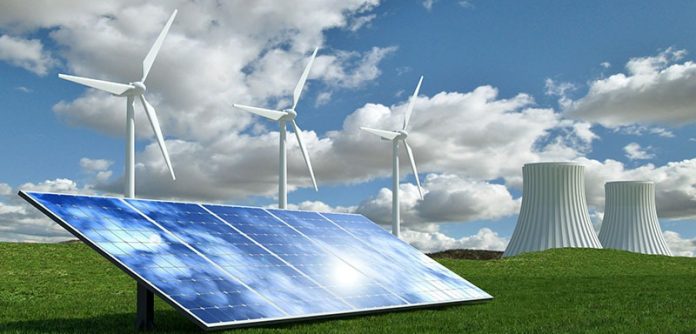- The ongoing COP26 at Glasgow under the aegis of the United Nations Climate Change Conference comes at a time when fossil fuel energy is proving to be detrimental for the very survival of Mother Earth in the years ahead. Emphasis on non-fossil fuel energy to ensure clean energy consumption has assumed an extremely important topic of discussions amongst the top leadership of the universe who not only acknowledge the need to address the matter with utmost importance but also arrive at some acceptable consensus to reduce global warming.

PC: Santosh
- Against this backdrop, Prime Minister Narendra Modi’s climate combat plan seems realistic, given India’s imperatives, but needs to be supplemented by plenty of government and political efforts. The PM announcing the final goal of net zero by 2070, a phase when emissions of greenhouse gases by human activity are offset by steps to neutralise it, seems a doable deadline, but one which will be revised as science advances. Nonetheless, there is yet another immediate deadline and relevance to honour the targets set for 2030. People in the know would infer that the energy sector will have to do the heavy lifting over the next decade with a changing energy mix expected to cut both projected emissions and carbon intensity of growth.
- The key 2030 targets are a non-fossil energy capacity of 500 GW and half the energy to be sourced from renewables. The moot point to ponder over here is where do we stand today? Note that India’s installed capacity at the end of September was 388.84 GW, of which around 40%, or 155.5 GW, was from non-fossil fuel sources. Renewables right now mean solar and wind capacity additions. Excluding hydro projects, India’s installed renewable capacity is about 100 GW. Out of which, the private sector today owns about 48% of the capacity. It’s a no-brainer to comprehend that private investors need an incentive to keep at it if India wishes to meet its 2030 targets.

PC: IANS
- This is where the political economy challenge lies. As you are aware, our power distribution system is broken and repeated attempts over 20 years to fix it have failed. Electoral politics is to be blamed for the mess our electric supply utilities are in. It is financially unviable to note that Discoms today have overdue of about Rs. 66,000 crores. Every state government indulging in populist measures like slashing tariffs has made reforms in the sector hard to implement. Make no mistake, if India has to meet its 2030 target, power distribution reforms need an all-party consensus on backing away from a competitive race to the bottom.
- Greater R&D investments to ensure the addition of renewable capacity is imperative. Intellectual Property Rights should be held by Indian entities as relying on China, a dominant player in the sector is fraught with dangers. Further fillip to nuclear energy should gain immediate traction as focusing on renewable energies alone may push up costs of electricity. Therefore, nuclear energy deserves as much of a push as wind and solar. Hopefully, the Indian think tank presses ahead on the same with intent.






